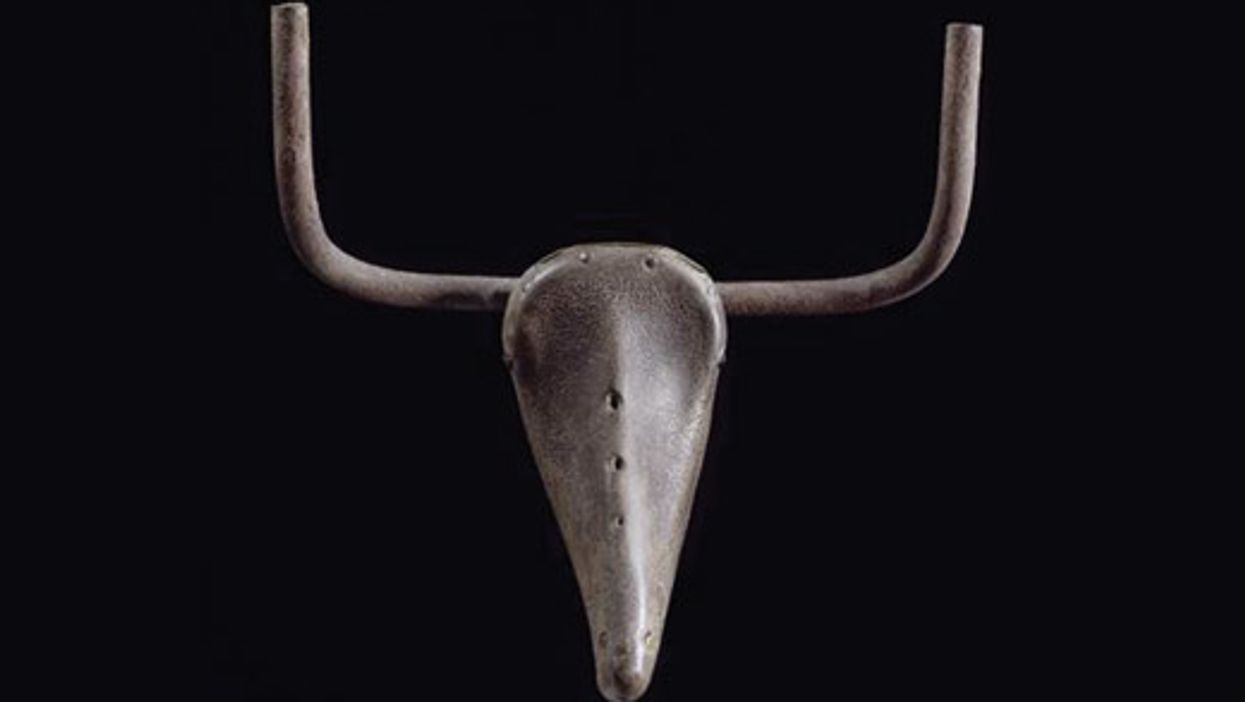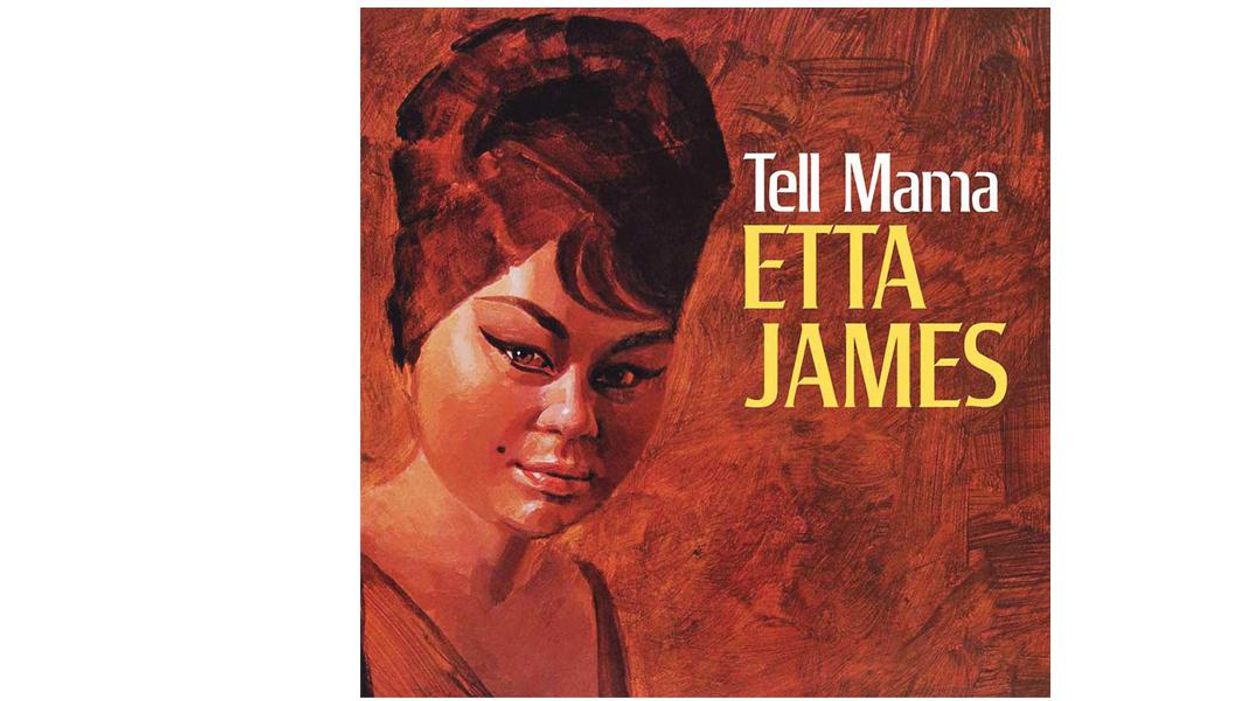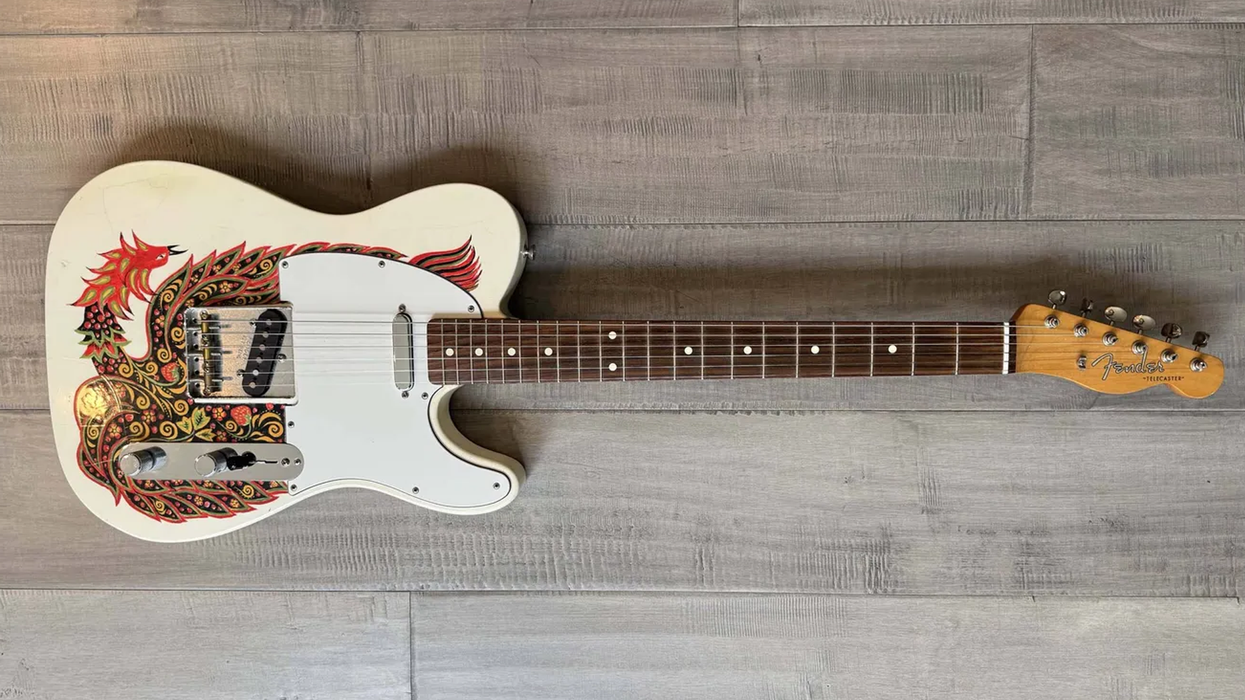For a guy who makes his living in the arts, I'm not particularly creative.
Fifty percent of my guitar bag is filled with all those riffs we have to learn as a right o' passage into Guitardom. (Here's to ya, Chuck Berry!) Thirty percent is composed of phrases somebody showed me that I tweaked to make it easier for my sausage-like fingers to muddle their pudgy way through. The remaining 20 percent of my bag is stuff I kind of came up with on my own. It's fun, but not groundbreaking.
For groundbreaking, look to Van Halen. The first time I heard Ed, I wasn't even sure I was hearing a guitar. When I eventually saw him play, I experienced a paradigm shift. At that moment, I understood that true creativity means approaching music with no boundaries. No rules. Inspired, I went on to try to copy all the same stuff everybody else already played. For most of us, learning to play music is like learning to talk. We listen to others, build our vocabulary, and eventually construct our own sentences once we have the tools, but it takes some time to get there.
Miles Davis went to Juilliard to try to gain those tools. While a student in New York, Davis hunted down Charlie Parker, worked his way into some jams with the Big Apple's jazz elite, then dropped out of school when he landed the gig replacing Dizzy Gillespie in Charlie Parker's band. Miles was 20 and must have been terrified. Diz was six years his senior and way past his 10,000 hours. Diz and Parker blew a lot of fast, frantic notes and pushed their instruments to the top of their ranges.
It was not a fair fight. Davis knew he did not have the chops to cop Dizzy's sound, so he went another direction, sticking to the middle notes and working in more space and slower lines, like a painter leaving parts of his canvas blank.
The gig gave Miles the leverage to land his own deal, leading to the sessions that became Birth of the Cool, starting in 1949, when Davis was just 22. (The tracks were eventually compiled and released as the album in 1957.) Birth of the Cool stood out because it deviated from the bebop trend. If Miles had Dizzy's chops, the album might not have sounded so fresh. At that point Miles' style was a product of his limitations, but what he didn't have, he didn't need.
By the late '50s, bebop had become so complex and flashy that it felt lifeless, like early-'90s shred guitar. At age 32, Miles brought his band into the studio with nothing but some rough sketches of changes and almost no rehearsal. They recorded the improvisational Kind of Blue in two days, often keeping first takes. Kind of Blue did to jazz what Nirvana did to hair metal. It revealed how trite and bloated the current trend had become. Total game changer.
Eleven years later, Miles released Bitches Brew. Some critics thought he was selling out—denying his blackness and bowing down to white rock. They complained that Miles' new work sounded nothing like the guy they had championed. In response to the Miles-does-not-sound-like-Miles complaints, Davis said, “Sometimes it takes you a long time to sound like yourself."
Sounding like you takes time not just because you need to put in the hours to learn the craft, but, more important, you must first become you. When we are young, most of our philosophies, vocabulary, and spiritual leanings are absorbed from those around us. If we honestly evaluate the information we've gathered as we amble/stumble/wander through life, we come up with our own worldview. We discover ourselves when we go beyond repeating what we've heard and start thinking for ourselves.
Former Davis band member Herbie Hancock said that Miles wanted to capture the spirit of discovery in his recordings and performances. If you know the music too well, you get beyond that point. “Once you play with Miles, you are forever changed, but what you become is what you really are," Hancock said.
We are built from our past experiences. The “creators" take what they've gathered and manifest something new. Picasso took a bicycle seat, added some handlebars, and made Bull's Head. Critics argued, “That's not art. I could have made that." But they didn't. That's why those critics are anonymous and Picasso's work is ubiquitous.
We all have the same basic tools at our disposal, but truly creative people are alchemists who turn the ordinary into the extraordinary by refusing to be satisfied with what others have done before them.
For the last few years, on every gig, every session, and every video, I've made an effort to play something I've never played before. I've had plenty of disastrous notes, but also the occasional rewarding results, and when I'm stretching, for better or worse, I sound like me. Maybe a little lost, but picking up clues and forging ahead. As Van Halen said, “You only have 12 notes. Do what you want with them."




















